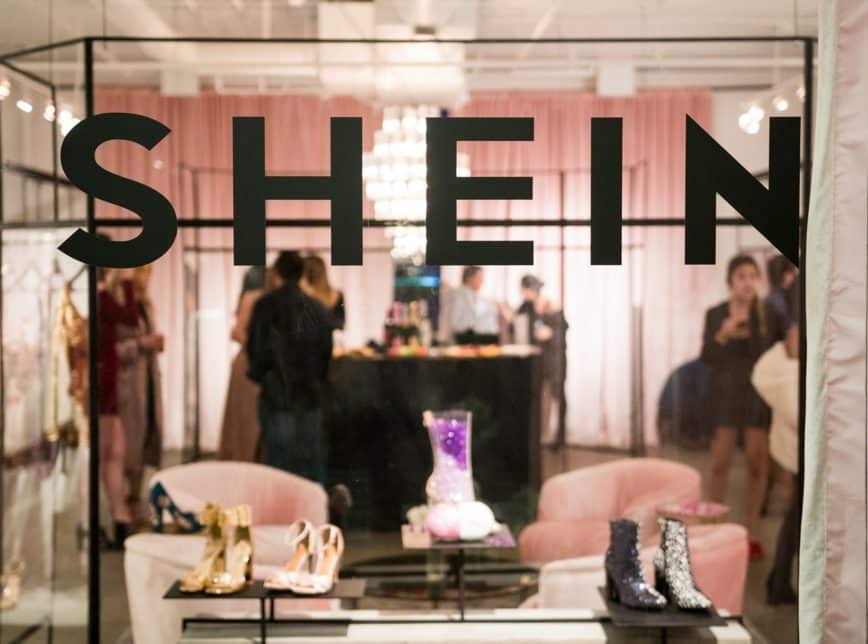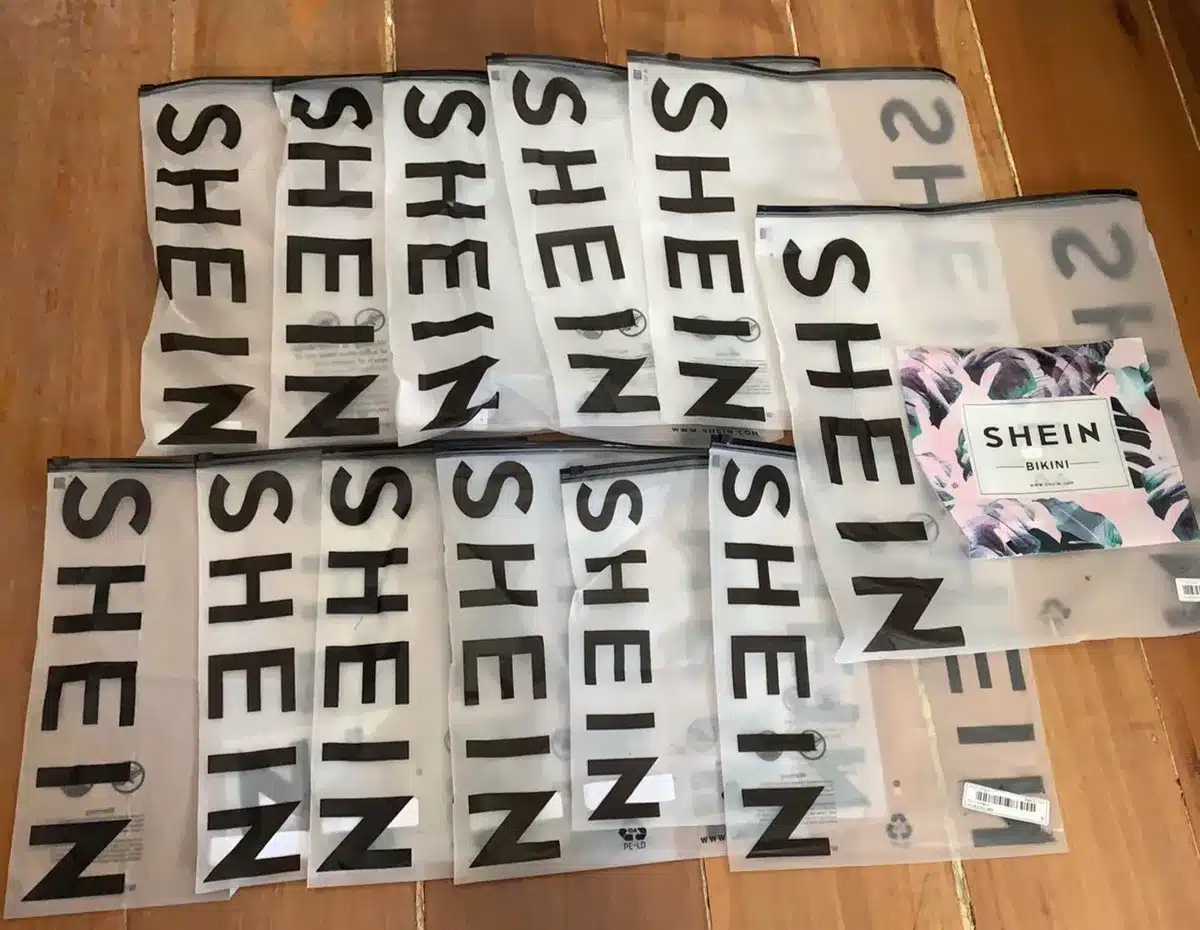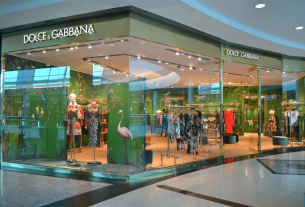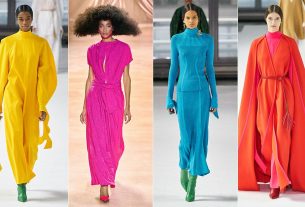Shein’s success is marked by trends quickly adopted by the brand and the lowest prices on the market.
You’ve certainly heard of Shein, the new internet fashion craze and the basis of fast fashion. It becomes less and less difficult to open TikTok, YouTube or Instagram and find an ad from the brand. Likewise, the famous transparent packages full of clothes occupy the wardrobes of many teenagers. Shein’s success is explosive, and the Chinese brand was able to establish itself very well during the pandemic period. With more than 6 thousand new items in the catalog every day, finding what you need is easy.
The brand takes fantastic advantage of new trends and what buyers want, but above all, costs. Understanding Shein’s success, after knowing a little about its reality, is not a difficulty. On the other hand, the Chinese giant also receives thousands of criticisms due to its environmental impact. Likewise, the lack of brand transparency and constant accusations of plagiarism from small designers are still a problem.
The recipe for Shein’s popularity is a mix of good prices, easily accessible trends and shopping convenience. In this sense, check below everything you need to know about the brand and what its main characteristics are.
Low cost of products

It is believed that the mysterious founders of Shein started a company in 2008, led by businessman Chris Xu. Previously, Xu worked in digital marketing and sold wedding dresses online. Five years later, the company assumed its current form, taking on the name Shein. Even though it is based in China, most of its customers come from the United States, Europe and Australia. The prices? Every consumer’s dream: the average doesn’t usually exceed R$58.
Nowadays, the brand has established itself in fast fashion and ships items to 220 countries. In this sense, the boost in sales was the result of the Covid-19 crisis. With quarantines in place, many consumers spent a lot of time surfing the internet. Therefore, expanding its presence was not difficult, reaching a wide audience quickly. It is estimated that Shein’s sales and success reached 63.5 billion yuan in 2020; around R$54.4 billion.
Environmental problems


Furthermore, Shein’s high production and low prices also raise several questions due to its environmental footprint. The challenge of selling clothes and still raising awareness is huge, as the fashion industry is responsible for up to 8% of global carbon emissions. Shein and many other fast fashion brands use polyester fabrics, which rely on oil and coal extraction. Likewise, they do not biodegrade like natural materials.
Still, the brand insists that its method of producing clothes in small batches is efficient. Likewise, a spokesperson commented that the business model “balances consumer wants and needs and the inventory process.” They also claim that they want to use more recycled fabrics, and that their printing technology for graphic elements and prints is less polluting than traditional printing.
Variety is Shein’s success

No matter when, the Shein website has at least 600,000 products for sale. The brand has thousands of outsourced suppliers, and around 200 contracted manufacturers, close to Guangzhou, the headquarters. Through a type of “real-time retail,” smaller companies receive information on trends or performance of certain products. Thus, they produce a batch of 50 to 100 items of one style. If it works, Shein will order more of them. If not, the process is discontinued.
In around 25 days, the brand can create a new item. However, for typical retailers, this process takes months. The model is the result of “test and repeat”, famous in companies such as H&M and Inditex, owner of Zara. According to the BBC, only 6% of Shein’s stock catalog remains on sale for more than 90 days.
Shein’s popularity

The Chinese brand is taking great advantage of the craze for influencers on the internet, as well as young “ambassadors” and reality show stars, names that have been most popular in searches in recent months. Shein’s profiles alone already have more than 250 million followers on their social media. Your online presence drives your success; As people learn more about the brand, the more they become involved. Likewise, influencer advertising and sponsorship on Instagram and TikTok has made it more relevant.
In this sense, the company also hosts live shows on its platforms to further promote its products. The venture is not so common in Western brands, but it has huge potential to boost sales. The use of customer data, however, worries countries like the United Kingdom. Some time ago, for example, Shein was accused of encouraging customers to provide personal data to win discounts and other rewards from the brand. This type of attempt becomes increasingly dangerous in an online world.
Shein Giant Creative Team

Providing so many products with different styles is not an easy task for brands that only have one or two designers. On the other hand, Shein has more than 200 of them, as well as more than 7 thousand employees. However, the brand has received more accusations of copyright infringement and is now facing lawsuits from companies such as the maker of Dr. Martens boots. Even so, they deny any wrongdoing.
A senior executive at the company revealed that they also have a team that reviews new projects from suppliers before they even reach the site. This makes it possible to filter any situation of rights violations, and according to him, the brand takes this matter seriously. So far, Shein has paid more than US$1 million to independent designers, but is still the target of plagiarism accusations. Many claim, for example, that she copies her creations and sells them for a much lower price.
To try to improve its image, the brand recently held a competition for young designers with a prize of US$100,000. Shein is still experiencing other problems of serious accusations, such as alleged job advertisements for workers in its factories and warehouses, where people of certain ethnic origins should not write themselves, such as Uyghurs. The company responded that it is committed to maintaining “high standards of work,” and does not fund or approve the ads.

Sign up for our newsletter and stay up to date with exclusive news
that can transform your routine!
Warning: Undefined array key "title" in /home/storelat/public_html/wp-content/plugins/link-whisper-premium/templates/frontend/related-posts.php on line 12
Warning: Undefined array key "title_tag" in /home/storelat/public_html/wp-content/plugins/link-whisper-premium/templates/frontend/related-posts.php on line 13




